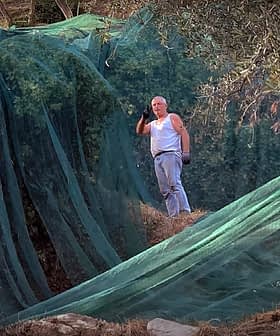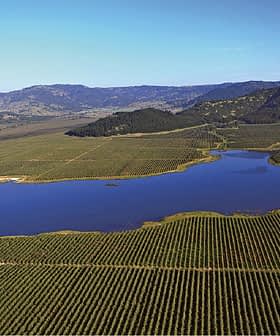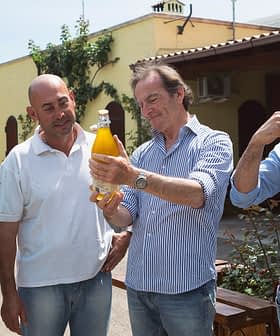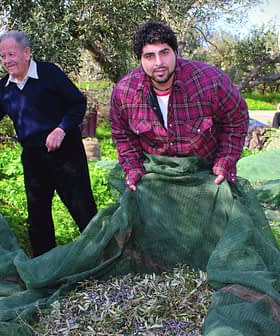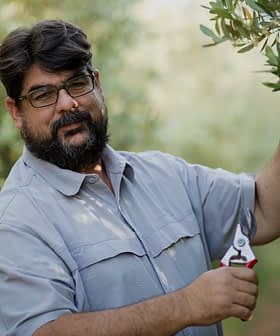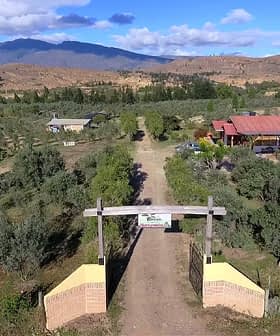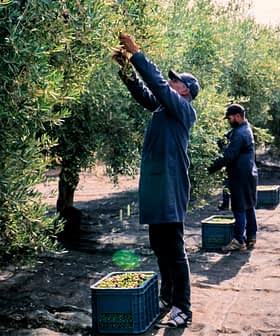In Slovenia, a Fruitful Harvest Despite Drought, Pests
The last few seasons in Slovenia have been characterized by high summer temperatures and a lack of precipitation. Salvation came with heavy September rains.
 Miran and Martin Adamič
Miran and Martin Adamič  5.7K reads
5.7K readsSlovenian olive growers celebrated World Olive Day on November 26 by filtering and storing their olive oil in cellars with a fixed temperature. Miran Adamič, owner of an organic olive farm in Izola, Slovenia, reported an average crop with top-quality oil despite challenges with high summer temperatures and increased production costs.
Slovenian olive growers celebrated World Olive Day on November 26.
Some had just finished filtering and storing their olive oil in stainless steel containers in cellars with a fixed temperature of 14 ºC to 16 ºC.
We picked beautiful, flawless olives… The oil is top quality, with balanced bitterness and spiciness, and harmonious, pronounced aromas and fruitiness.
“We can be satisfied,” Miran Adamič, the 64-year-old owner of Ronkaldo, an organic olive farm in Izola, Slovenia, told Olive Oil Times.
On his 2.9‑hectare olive grove in Baredi, Adamič, his wife, Renata, and son, Martin, grow 800 olive trees.
See Also:Producer ProfilesThe trees mainly comprise the autochthonous Istrian bjelica variety. Still, the family also grows Maurino, Leccino, Pendolino, Itrana, Buga, Leccio del Corno, and the table olive varieties of Storta, Mata and Ascolan.
The last few seasons in Mirano’s olive groves, and others in Slovenia, have been characterized by high summer temperatures and a lack of precipitation.
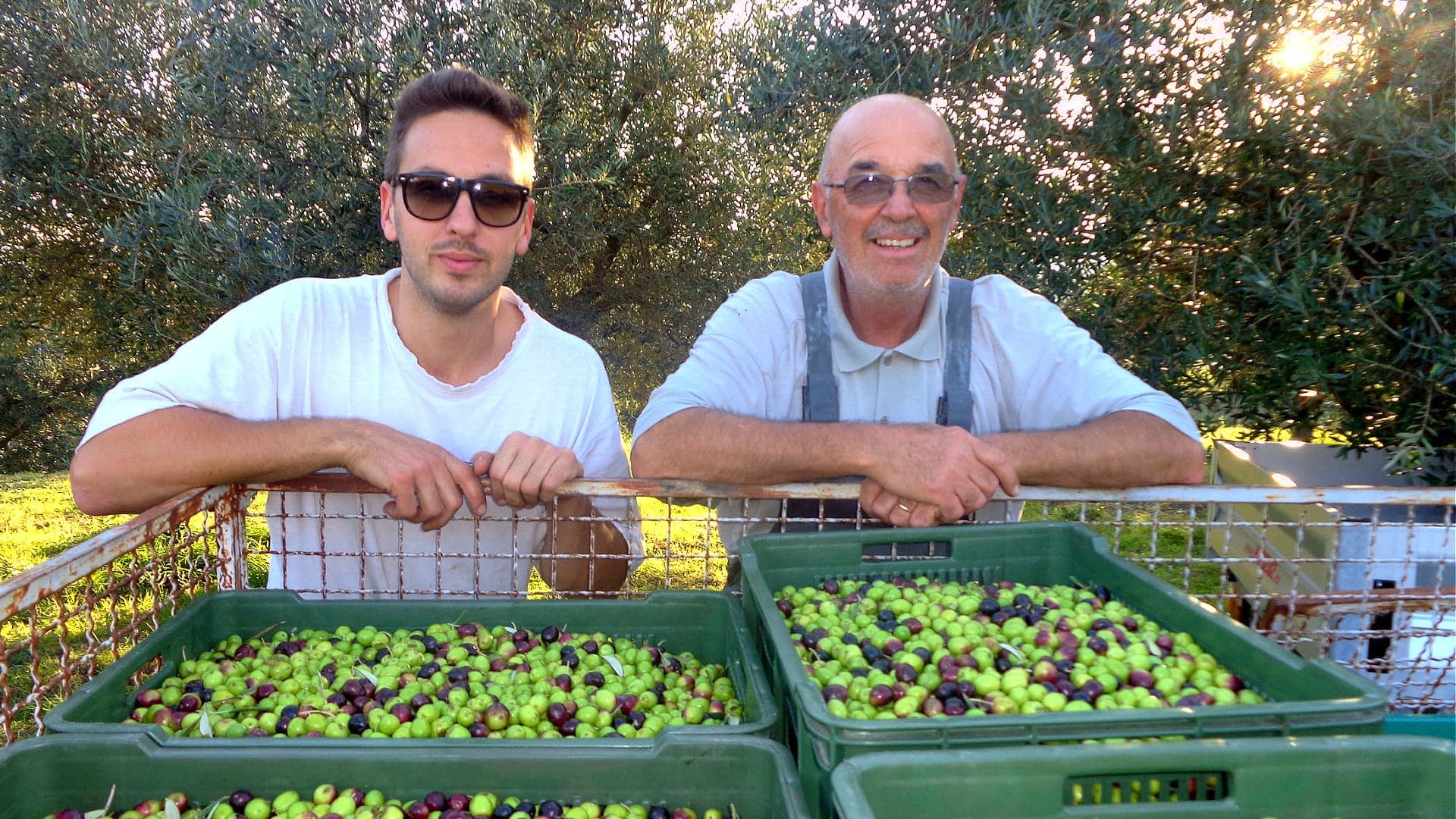
Miran and Martin Adamič
“Last year, the crop was the weakest in terms of quantity since we started growing olives,” Adamič said. “This year, I can say that it is average, but the oil quality exceeds expectations.”
“The oil is top quality, with balanced bitterness and spiciness, and harmonious, pronounced aromas and fruitiness, as confirmed by the chemical and sensory analyzes we received,” he added.
In July and August, drought and extremely high temperatures suggested a challenging harvest lay ahead. The olives resembled dried grapes.
However, salvation came during September when heavy rain helped the olive trees recover.
“We picked beautiful, flawless olives,” Adamič said. “True, they contained a relatively large amount of water, and because of this, the percentage of oil in the fruit was lower – between 7.8 and 14 percent –- depending on the variety and the micro-location where individual trees grew.”
While the high temperatures and drought created some unease before the autumn rain arrived, it also meant there was very little damage done by the olive fruit fly, one of the most significant pests of the crop.
Based on the monitoring carried out by the olive growers in their groves and the Institute for Olive Growing of the Scientific and Research Center (ZRS) Koper, there was practically no need to treat against the olive fly because there was little evidence of damage cost by the pest.
Dry and slightly hot weather during the harvest meant Adamič could complete it without worrying too much about the fly.
Overall, producers feel that everything with the harvest has gone reasonably well this year, except for increased production costs.
“All energy products, bottles, cardboard packaging, processing costs and costs of auxiliary labor that we need for olive harvesting have gone up in price,” Adamič said. “The price has reached almost €1 per harvested kilogram.”
He adds that the costs of certification in Slovenia are quite high but praised the municipality of Izola, which subsidized part of these costs for the first time this year.
“Due to higher input costs dictated by market conditions, this year we were forced to correct the prices of our extra virgin olive oils, and now we are waiting for the last, also important stage in the production process: to sell successfully,” Adamič said.
However, he has not had any issues with sales. “We sell most of our extra virgin olive oil to regular, long-term customers, to tourists who come to our farm and select catering establishments and boutiques in Slovenia and abroad,” Adamič said.
He founded Ronkaldo in 1984 after leasing a half-hectare of abandoned agricultural land near the coastal town of Izola from the local municipal agricultural fund.
“In the beginning, it was necessary first to clear the completely abandoned and neglected land, and then we planted some crops and fruit trees,” Adamič said.

Young trees on neglected land
They planted the first olive trees in 1987. Then, in the mid-1990s, they bought another 0.5 hectares of land and planted the first significant olive grove with 350 trees on the advice of the agricultural advisory service.
The Adamič farm is located 140 meters above sea level on the southern slope of a hill shaped like an amphitheater, which creates an ideal environment for growing olives.
“Over the years, we acquired additional areas, but they were all neglected and overgrown and needed to be cleaned and prepared for planting olives,” Adamič said.
They currently cultivate 3.2 hectares of land, of which 800 olive trees are planted on 2.9 hectares. However, most of the land is leased from the state fund for agricultural land and forests, and the Adamič family owns only a small part.
Initially, they produced only a mixed variety of extra virgin olive oil (cuvee). “We are now increasingly producing single-variety oils from the varietal assortment of our plantations,” Adamič said.
The Adamič family has earned awards at local quality competitions for their table olives and olive oil.
Share this article



